
Aman Sehrawat pleaded with the doctors to expedite the mat-side treatment, his face covered in blood and his biceps showing veins. Aman Sehrawat flashed a thumbs-up and waved them on, worried that the pause would halt his momentum, even as the two medical professionals stitched him up.
It was the primary time in the six-minute gold award session that the Indian was equivocal. Before that, the young Aman Sehrawat , who won the 57kg final 9-4, had put on an incredible show of attacking wrestling. He beat Smanbekov at Astana in Kazakhstan with explosive strength, long reach, and quick movements. After a minute-long medical break, Aman Sehrawat could keep his opponent, the bronze medalist from last year’s championship, out of his reach when the fight resumed.
At New Delhi’s Chhatrasal Stadium, Aman Sehrawat’s quick legwork and upper-body strength have been praised for years. However, he was not accepted into India’s largest wrestling nursery because of that. Coach Lalit Kumar says, “We took him in because he had nowhere else to go.”
The wrestler’s mother, who had been depressed, passed away when he was ten. Aman Sehrawat’s father also passed away a year later because he was deeply affected by his wife’s untimely death. It was around quite a while back, Lalit says, that Aman Sehrawat ‘s uncle and cousin dropped him at the akhada.
When Aman Sehrawat became an orphan, he was 11 years old. I assumed that, at the very least, we could provide him with two nutritious meals per day. Lalit asserts, “His uncle took care of him, but one day, Aman’s (cousin’s brother) brother brought him to me.”
Not at all like the sure grappler with swelling biceps that he is today, Lalit says Aman Sehrawat was skinny and bashful when he initially met him. They began at a nearby akhara in Birohar, an uninspiring town in Haryana’s Jhajjar region, before moving to the legendary Chhatrasal Arena.
Destiny could have given him a rough hand; however, Aman Sehrawat lowered himself into the grave existence of a grappler: awaken before dawn, climb ropes suspended from a goliath tree, hook in the mud, and train on the mat—this sort of way of life’s created champions. Chhatrasal’s place in Indian wrestling is undisputed – from Sushil Kumar and Yogeshwar Dutt to Bajrang Punia and Ravi Dahiya, all Olympic medallists have consumed their whole brandishing time on earth, or sooner or later prepared, at this North Delhi office.
Little did Aman Sehrawat realize in those days that he would carry on this rich heritage. “Lalit asserts, “He didn’t have the power or speed at first.” There was normal physicality, yet those powers must be coaxed out, and Aman did it by preparing steadily. “He had, in a way, put all his eggs in one basket. Aman knew he would have no other option if wrestling did not work out for him. So he would practice very hard, and our job was to make him stronger by giving him a rich diet and teaching him the right techniques,” Lalit continues.
In addition to the wrestler’s doodh-ghee-badam diet, it helped that he was surrounded by greatness. Like all wrestlers here, Aman Sehrawat watched Sushil, Bajrang, Ravi, and Deepak (Punia, a world championship medalist) train as a child. Lalit claims that they are even spared from time to time. There could be no more excellent learning than this. “
Before long, things started making sense on the mat for the young fellow who’d experienced childhood with tremendous difficulty. He began with a bronze medal at the 2018 World Cadet Championship before winning the Asian title in the same age group. After that, he won the national title in 2021 and the Under-23 Asian and World titles in 2022.
He won his first senior medal earlier this year, a bronze, at the Ranking Series in Zagreb, but Thursday’s gold will be considered his most significant accomplishment to date.
Because he was seeded fourth, Aman Sehrawat was immediately guaranteed a spot in the quarterfinals. In his first fight, he defeated Japan’s Rikuto Arai, a bronze medalist from last year. He defeated Wanhoo Luo of China in the semifinals to meet Smanbekov for the gold medal. Even though he conceded a few easy points, Aman Sehrawat relied on his long reach and speed to target Smanbekov’s ankles for takedowns. He was in attack mode from the beginning.
There were infrequent conflicts, one of which prompted a cut on his eyebrow. The Indian left the mat with gold around his neck and blood on his face, but none were severe enough to worry him.
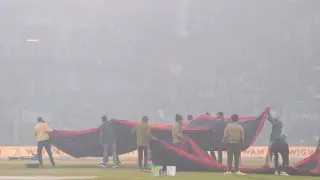
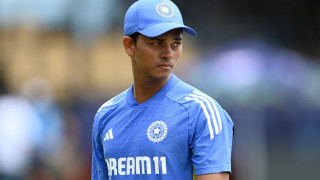
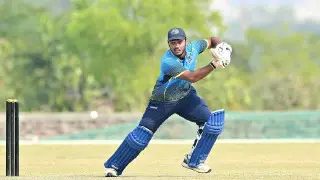
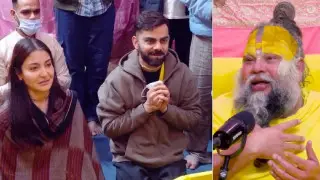
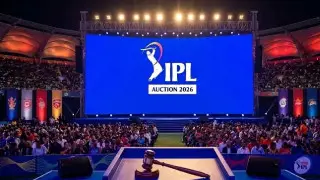








Copyright © 2025 Top Indian News
